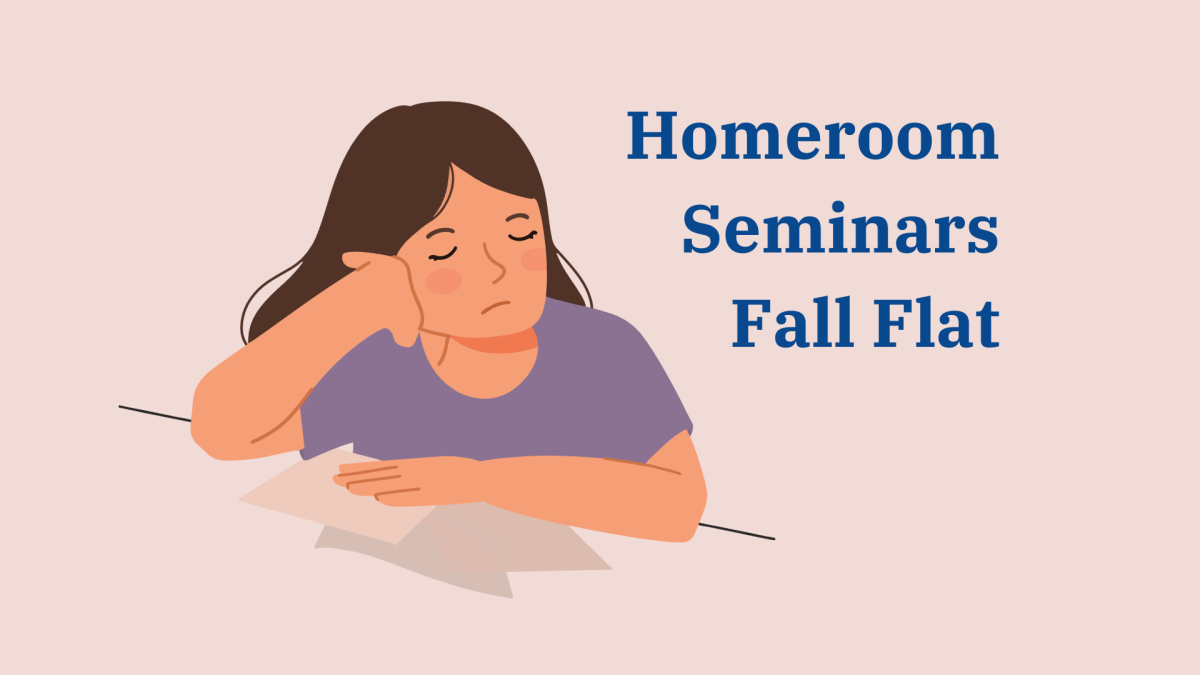It’s that time of year again. Teachers are piling on the work before Winter Break, the weathermen are lying about the chances for a snowstorm, and seniors are finishing up (or starting) college applications.
With the promise of college looming ahead for many seniors, many forget a very real threat: senioritis. Senioritis, a serious condition characterized by serious allergic reactions to schoolwork that can only be cured by graduation, affects many students each year. This disease is highly communicable and can be deadly to GPAs. Severe Senioritis has also been known to set in as early as junior year. For the sake of the senior class, follow these tips to treat your senioritis.
1. Start studying for exams now. Really.
There’s no question that exams are literally the worst things that students have ever had the misfortune of being subjected to (other than the short-lived block scheduling). They’re in the middle of January (which makes absolutely no sense), they take hours and they make your brain hurt. Despite these obvious negatives about exams, there is something that is much worse – getting a bad grade in a class because you didn’t put in a few hours of studying. Keep in mind that for most people, first semester grades are some of the last things that colleges see about your in-school performance.
2. Come to school (almost) every day
Poor attendance is another common symptom of Senioritis. Try to remember that absences still count. A personal day once and a while can be relaxing, but missing too much school is an easy way for work to snowball, resulting in procrastination and the need for another day off to make up the work. Even though school may be the last place that you want to spend a sunny, 60 degree December day (seriously, the weathermen are liars), truancy is always bad. Also, as per point one, the first step to studying for an exam is to show up to the class regularly.
3. Tardies are also bad.
For many seniors, the only struggle bigger than showing up to school is showing up to school on time. Each day, seniors sneak into their first block classes a few minutes late armed with a cup from Starbucks in one hand and car keys in the other. This has to stop.
First of all, many of these people are terrible at being sneaky (hint: your keys make a lot of noise. Also, when you’re late every day, your teacher knows that they didn’t accidentally skip you during the roll call).
Think of it this way: if you overcame the daily struggle of deciding to go to school, you might as well get there on time. Though it’s true that school days are far too long and awkward – running from 8:55 in the morning to 3:45 in the afternoon with lunch at a ridiculously early time – it’s important to be in the building for all of them.
4. Reassess your motivations
Second semester of senior year getting good grades becomes a much poorer motivating factor than it has been for many people over the last few years. With only several months to go before graduation, many seniors have little (or no) motivation to do homework. Feeling guilt over this situation only worsens the procrastination that comes with Senioritis.
Instead, try applying some techniques that you learned in AP Psychology. Picture yourself at a post-graduation party, happily burning all of your outlines from the past four years. If you don’t do all of your outlines, the fire will be small and your party will be boring. Don’t let your party be boring.
5. Make friends with your teachers
Some teachers are invaluable resources of wisdom who are highly knowledgeable about the subjects that they teach. Others are there mostly just to make your life miserable. Either way, most people are generally better off if their teachers don’t completely hate them. Following the points above will set you on the right track for this.
Though fighting Senioritis is a constant battle, the results will pay off in the form of acceptance letters from colleges. Even if it’s too late for many of the seniors, underclassmen should heed this warning and avoid coming down with Senioritis.






